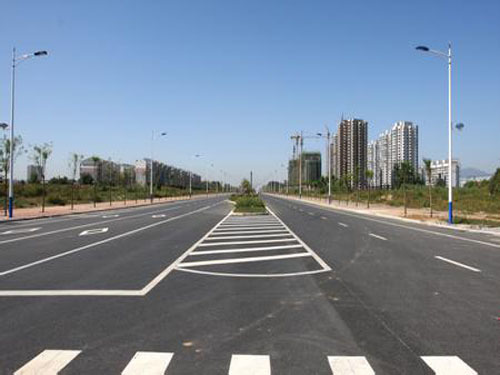Highway construction investment method

Highways are an important public welfare infrastructure of the country and require huge amounts of funds for investment and construction. However, the lack of funds has long plagued the development of road construction in China. In order to solve the problem of funding sources, the state has introduced a number of policies. In addition to increasing government investment, it has also actively used market mechanisms to raise construction funds through multiple channels, multi-level, multi-form, and diversification, and gradually formed a “national investment, local "Financing, social financing, and utilization of foreign capital" investment and financing system. At present, China's road construction investment and financing mainly have the following forms:
First, financial allocation
The budgetary allocations for the central and local governments are mainly used for the construction of national defense highways, key highways, and regional highway construction.
Second, the implementation of workers
To help poverty-stricken areas change their appearance as soon as possible, on the basis of the implementation of migrant workers and civil servants, the State Council decided to use the inventory of grain and cotton cloth and middle and low-grade industrial products, and work to build roads from county to townships and to agricultural product distribution centers.
Third, the collection of vehicle purchase tax
On December 25, 1984, the 54th executive meeting of the State Council decided that a vehicle purchase surcharge should be imposed on all units and individuals that purchase vehicles, providing a strong financial guarantee for road construction. This part of the funds will be issued by the Ministry of Communications in accordance with the planning of the highway network and the construction of local highways. In order to rationalize the national tax-to-fee relationship, the State Council decided to change the "vehicle purchase surcharge" to "vehicle purchase tax" from January 1, 2001, and the funds will be incorporated into the state budget management.
Fourth, levy road maintenance fees, passenger and freight surcharges and fuel tax
As early as 1950, the Administrative Office of the People's Republic of China formulated a policy of “using roads to maintain the road†and imposed road maintenance fees on automobiles and tractors for road maintenance and construction. Since 1988, various localities have raised funds for highway construction and, with the approval of the provincial government, have successively imposed road passenger surcharges and freight surcharges. In 1998, the Party Central Committee and the State Council made major decisions to expand domestic demand and speed up the construction of infrastructure. It also stipulated that the capital portion of funds for highway construction projects should not be less than 35%. In order to solve the capital gap problem, the State Council decided that from July 1, 1998, the passenger surcharge per passenger highway will increase by 0.01 yuan.
On October 31, 1999, the 12th session of the Ninth National People’s Congress Standing Committee decided to change the road maintenance fee to “fuel tax†and amend the relevant provisions of the “Highway Lawâ€. The specific time for the implementation of the fuel tax is decided by the State Council. .
V. Loan road construction, repayment of loans
In 1984, the State Council made an important decision to “make loans for road construction and repay loansâ€. It allowed the construction of toll roads through fund-raising or bank loans, and collected fees for tolls for vehicles passing through toll roads (bridges, tunnels) to repay loans. . The “Road Building and Fee Repayment†policy has effectively accelerated the progress of highway construction.
Sixth, using the capital market
The transportation departments around the country have actively used domestic and foreign capital markets, adopted transfer of highway toll collection rights, issued corporate bonds, and issued domestic and overseas stocks to expand financing channels and raise construction funds. Through the reorganization of road assets, a highway joint-stock company was set up to issue shares on the stock market and use the capital market to raise funds for highway construction.
7. Use foreign capital
The state encourages the use of overseas financial institutions, economic organizations, or foreign governments to build loans on highways. The use of foreign capital to build roads is mainly two channels: First, the direct use of foreign capital, cooperation with foreign investment in highway construction projects, or the transfer of built-in highway tolls directly to obtain foreign capital for highway construction; Second, the use of foreign government loans and international finance Organize loans, including the World Bank, Asian Development Bank, Japan Overseas Economic Cooperation Fund, and Japan Export Bank.
PHE stands for Plate Heat Exchanger, which is a device used to transfer heat between two fluids. APV is a brand that manufactures plate heat exchangers.
A spare plate for an APV plate heat exchanger refers to an additional plate that can be used as a replacement in case any of the existing plates get damaged or worn out. Having spare plates on hand ensures that the heat exchanger can continue to operate efficiently and effectively without any downtime.
Spare plates for APV plate heat exchangers can be purchased from authorized dealers or directly from the manufacturer. It is important to ensure that the spare plate is compatible with the specific model and size of the APV plate heat exchanger to ensure proper fit and function.
Apv Plate Heat Exchangers,Apv Phe Plate,Apv Heat Exchangers Plates,Phe Plate For Apv
Dongguan Runfengda F&M Co., Ltd , https://www.runfengd.com
